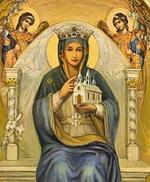Catechism of the Catholic Church
Share this paragraph of the Catechism:
Paragraph:
406 The Church's teaching on the transmission of original sin was articulated more precisely in the fifth century, especially under the impulse of St. Augustine's reflections against Pelagianism, and in the sixteenth century, in opposition to the Protestant Reformation. Pelagius held that man could, by the natural power of free will and without the necessary help of God's grace, lead a morally good life; he thus reduced the influence of Adam's fault to bad example. The first Protestant reformers, on the contrary, taught that original sin has radically perverted man and destroyed his freedom; they identified the sin inherited by each man with the tendency to evil (concupiscentia), which would be insurmountable. The Church pronounced on the meaning of the data of Revelation on original sin especially at the second Council of Orange (529) 296 and at the Council of Trent (1546). 297
Move forward or back a paragraph: Previous | Next
Where this paragraph appears in the Catechism:
TABLE OF CONTENTS
» |
PART ONE: THE PROFESSION OF FAITH |
» |
SECTION TWO: THE PROFESSION OF THE CHRISTIAN FAITH |
» |
CHAPTER ONE: I BELIEVE IN GOD THE FATHER |
» |
ARTICLE 1: "I BELIEVE IN GOD THE FATHER ALMIGHTY, CREATOR OF HEAVEN AND EARTH" |
» |
Paragraph 7. The Fall |
» |
III. ORIGINAL SIN |
Notes for the above paragraph:
296 DS 371-372.297 Cf. DS 1510-1516.
English Translation of the Cathechism of the Catholic Church for the United States of America © 1997, United States Catholic Conference, Inc.






